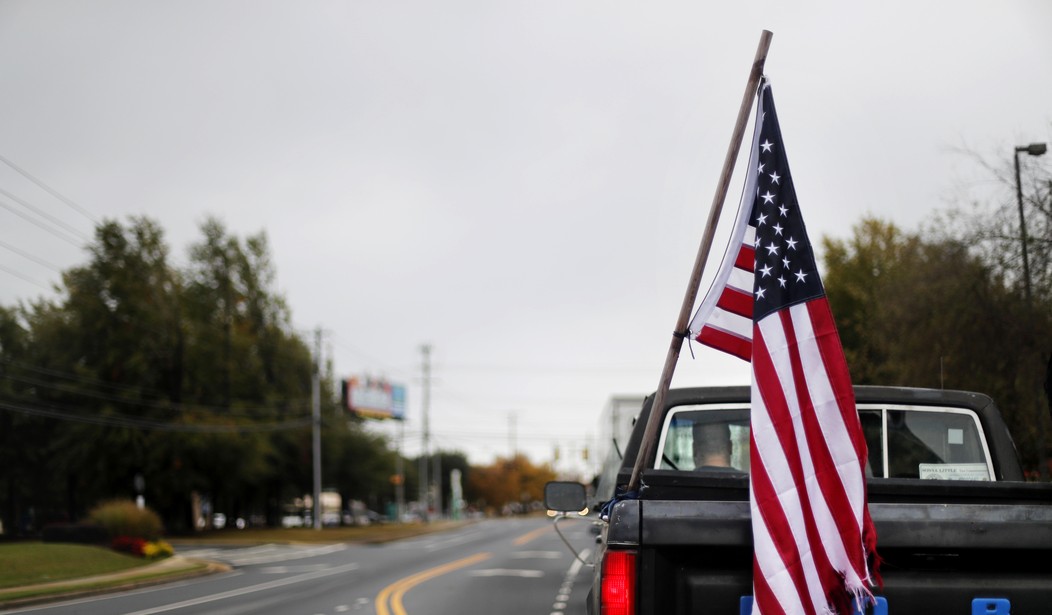American politics has a new boogeyman. Editorial writers across the country are frantically warning us about the dangers of Christian nationalism. From Anchorage to Miami, Dallas and elsewhere, newspapers are sounding the alarm.
But like so many manufactured issues, the term ‘Christian nationalism’ is specifically vague. It sounds like an actual thing yet has no clear definition so it can mean anything. This may account for why specific threats from Christian nationalism are so rarely cited.
Most critics do no more than launch invectives against Christians, promote falsehoods about America’s founding, and issue fuzzy warnings about the future of democracy. The rhetoric is sometimes startling. One writer went so far as to compare Christians to the Taliban; it’s a leading indicator of the recent hysteria over Christian nationalism.
A few particulars are sprinkled into criticisms of Christian nationalism. Some worry it might lead to an increase in voluntary public prayer. Others are concerned that more babies will be born. Most argue it will lead to an American theocracy, destroying the separation of church and state.
For the gazillionth time, the U.S. Constitution says nothing about separation of church and state. It says, “Congress shall make no law respecting an establishment of religion, or prohibiting the free exercise thereof.”
If any of these critics know a congressman who wants to pass a law establishing a state religion, or prohibiting people from worshiping, please tell us who it is so I and 75 million other Americans can send his office an email telling him to knock it off.
Recommended
Most importantly, purveyors of misinformation about Christian nationalism appear to have little understanding of the Reformation. It is the bedrock of biblical Christianity, and greatly influenced the American founding and modern law.
Consider the writings of Martin Luther. His 1520 Address to the German Nobility expressly advocated a separation of the secular government from the church in Rome, seat of the largest theocracy in Europe. He exhorted Christians to recognize two separate and distinctive governing entities; one spiritual and one secular.
Fourteenth-century philosopher and theologian John Wycliffe was also an advocate of separating the government from the church, arguing that clerics held too much power among the governing English nobles of the day.
French theologian John Calvin, a contemporary of Luther’s, explicitly warned against combining church and state, writing, “We must keep in mind that distinction which we have previously laid down so that we do not (as commonly happens) unwisely mingle these two, which have a completely different nature."
The philosophies of Calvin, Luther, Wycliffe and other leaders of the Reformation, as they pertain to separate entities governing our secular and spiritual lives, are woven throughout biblical Christianity. They were the driving force behind the First Amendment to our Constitution. To claim that evangelical Christians are now prepared to recant more than 500 years of doctrine regarding the church and state is beyond laughable.
It’s fair to examine the Reformation and its principles in the political context of the day. The Reformers may well have espoused church/state separation because they hoped a civil government might intervene when the church wanted to burn them at the stake. Yet those principles were so durable, they still prevail in 21st-century America. Clearly, the idea of keeping the church separate from government eclipsed any immediate desire for self-preservation.
It is ironic that critics of Christian nationalism often quote Abraham Lincoln’s Gettysburg Address when articulating the democracy they claim they want to preserve. But Lincoln’s 1863 speech borrowed one of its most famous lines, word for word, from Wycliffe, who wrote in the introduction of his 1384 English translation of the Latin scripture, "This Bible is for the Government of the People, by the People, for the People.”
Some may seek to portray this as evidence that biblical Christianity espouses establishing a theocracy, but it doesn’t. Wycliffe knew the Bible provided a principled basis for civil society. So did Lincoln. People warning us about Christian nationalism may disagree with Lincoln but curiously, they do not propose an alternative basis for governing. Why might that be?
History is filled with examples of governments based on something other than biblical principles. The National Socialist German Workers' Party instituted an alternative a century ago. So did the Union of Soviet Socialist Republics in 1922. The Communist Party of China followed suit when it took over in 1949. One can be forgiven for noticing a trend among governments that eschew the Bible.
The vigor with which Christian nationalism is opposed is not about preventing an American theocracy. It’s a reflection of the fear it instills among those who prefer greater or lesser degrees of totalitarianism.
I learned in the military that you don’t take flack unless you’re over the target. Given the bellicosity focused on Christian nationalism, I’d say it has the ideology of the American Left squarely in its cross-hairs.
Scott Hogenson is a political and cultural commentator who resides in Texas.
























Join the conversation as a VIP Member